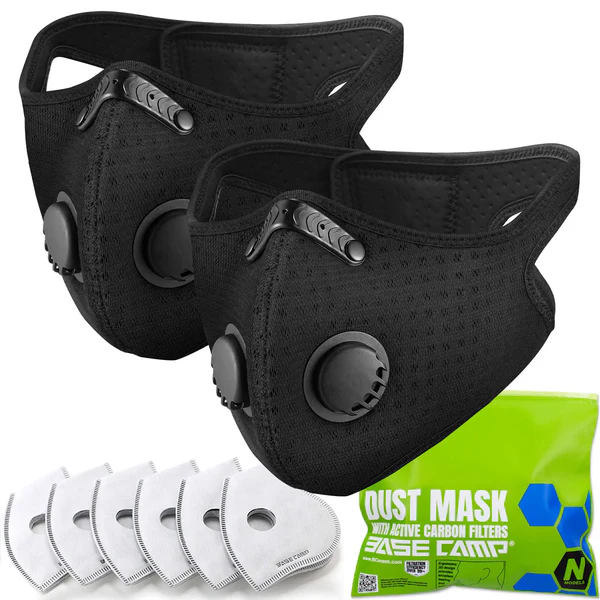
Dust exposure in workplaces like construction, woodworking, and mining poses serious health risks, especially to the lungs. Prolonged exposure to airborne dust particles can lead to chronic respiratory conditions, including pneumoconiosis. Wearing the right dust mask is critical to minimizing these risks. This article explores real-world studies and data showing how consistent mask use significantly reduces the chances of developing dust-related respiratory diseases.
Understanding Dust and Its Health Hazards
Dust is generated from various materials and activities, such as cutting wood, drilling concrete, or handling industrial substances. Fine particles can stay airborne and are easily inhaled, leading to long-term lung damage. Scientific research links dust inhalation to diseases like asthma, COPD, and particularly pneumoconiosis. Often called “black lung,” pneumoconiosis is especially prevalent among coal miners but affects anyone exposed to hazardous dust over time. Reducing exposure is a top priority in occupational health.
Case Study 1: The Mining Sector
A long-term health study of miners revealed a compelling link between dust mask usage and reduced illness. Over a ten-year period, miners who regularly used advanced filtering dust masks, including brands like BASE CAMP mask, showed markedly lower rates of respiratory conditions. Health assessments of more than 1,000 miners confirmed that proper and consistent use of dust masks helped maintain lung function and reduce symptoms such as chronic coughing and breathlessness.
Case Study 2: Woodworking Industry
Another telling example comes from a study conducted at a U.S. woodworking facility. Employees who wore certified woodworking masks with features like elastic straps and foam nose bridges experienced fewer respiratory complaints than those who did not. Over five years, the group using high-quality dust masks reported less wheezing, coughing, and improved lung health. This research underscores the importance of wearing appropriate PPE in dusty environments.
How Dust Masks Provide Protection
Dust masks, whether disposable or reusable with valves and filters, are engineered to trap airborne particles before they reach the lungs. Features like adjustable nose clips and snug neck fits help improve the seal and effectiveness. Masks with activated carbon filters offer enhanced protection against both dust and vapors. NIOSH-certified options provide assurance of quality and filtration efficiency. Choosing the right type of mask for the task is key to ensuring adequate protection.
The Importance of Consistent Use
Occasional mask use offers limited protection. Experts agree that wearing a dust mask consistently is vital to preventing long-term damage. Employers must emphasize this through regular training, promoting awareness of the dangers of dust exposure, and creating a workplace culture that prioritizes safety. When workers understand the risks and benefits, compliance improves dramatically.
Case Study 3: Construction Workers
Construction workers also benefit greatly from routine mask usage. A survey across multiple job sites revealed that those who consistently wore dust masks during high-dust activities had significantly better lung function than those who didn’t. Workers who followed safety protocols not only reported fewer respiratory symptoms but also demonstrated stronger lung performance in medical testing.
Additional Benefits of BASE CAMP Masks
Beyond respiratory protection, BASE CAMP masks offer additional health advantages. Workers report less facial and nasal irritation from dust and pollen. Comfortable fit and design reduce pressure on the back of the head and neck, enhancing long-term wearability. Psychological comfort is another plus—workers who feel protected tend to experience greater job satisfaction, fewer sick days, and higher productivity.
Conclusion:
Evidence from various industries clearly demonstrates the health benefits of wearing dust masks. From reducing cases of pneumoconiosis in miners to improving breathing comfort for woodworkers and construction teams, the importance of consistent mask use cannot be overstated. Employers must provide high-quality masks and ensure proper usage through training and policy enforcement.
Call to Action
If you work in a dust-prone industry, protect yourself with a reliable mask like the BASE CAMP dust mask or BASE CAMP M woodworking model. Consistent use not only safeguards your lungs but also enhances your work performance and overall well-being. Don’t wait—your health and career longevity depend on the steps you take today.



